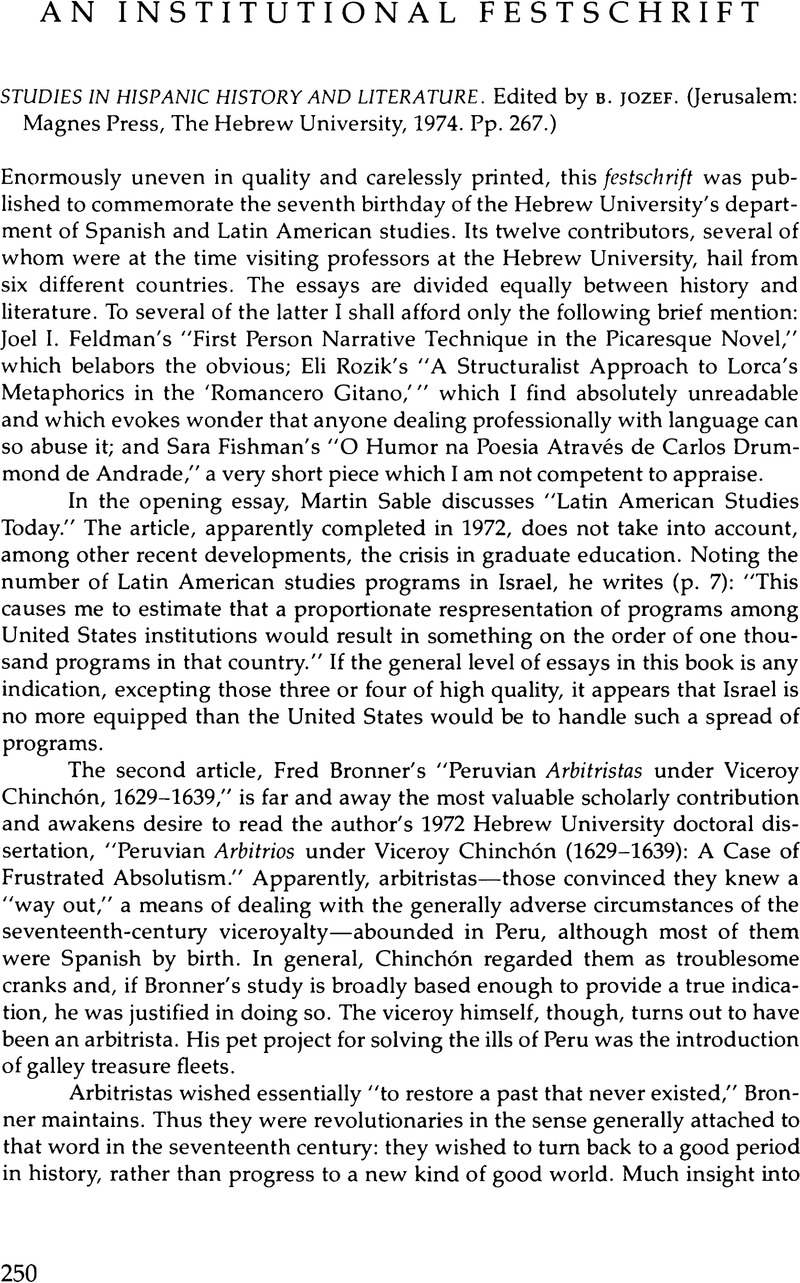No CrossRef data available.
Article contents
An Institutional Festschrift
Review products
Published online by Cambridge University Press: 24 October 2022
Abstract

- Type
- Books in Review
- Information
- Copyright
- Copyright © 1978 by the University of Texas Press
References
Notes
1. See H. G. Hambleton, “The Economic Decline of Spain in the 17th Century: Contemporary Spanish Views,” Ph.D. dissertation, London School of Economics, 1964; Michael Gordon, “Morality and Politics in 17th-Century Spain: The Arbitrista Pedro Fernández Navarrete,” Ph.D. dissertation, University of Chicago, 1972 and “The Arbitristas: An Historiographical and Bibliographical Survey,” Newsletter of the Society for Spanish and Portuguese Historical Studies 2, 7–8 (May 1974):168–84; Thomas Niehaus, “City vs. Countryside in the Spanish Arbitristas of the 17th Century,” Paper presented at the meeting of the Society for Spanish and Portuguese Historical Studies, Washington, D.C., 1973; and Mario L. Sánchez, “The Attempts at Reform in the Spain of Charles II: A Revisionist View of the Decline of Castile, 1665–1700,” Ph.D. dissertation, University of Notre Dame, 1976.
2. A previous Ph.D. dissertation deals with aspects of this period in Spanish history: Charles Wentze Fehrenbach, “A Study of Spanish Liberalism: The Revolution of 1820,” University of Texas, Austin, 1961. See also his “Moderados and Exaltados: The Liberal Opposition to Ferdinand VII, 1814–1832,” Hispanic American Historical Review 50 (1970):52–69.
3. For the view that Ferdinand, in the late stages of his rule, allowed himself to be influenced by advisers shaping a gradual opening toward change, see Luis Alonso Tejada, Ocaso de la Inquisición en los últimos años de reinado de Fernanado VII (Algorta, 1969), and the five-volume Documentos del reinado de Fernandno VII, prepared by the Seminario de Historia Moderna under the principal editorship of Federico Suárez (Pamplona, 1968–70). These works challenge many of the interpretations of Miguel Artola, long considered the foremost contemporary authority on Ferdinand VII.


